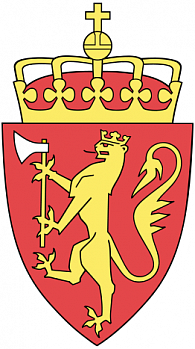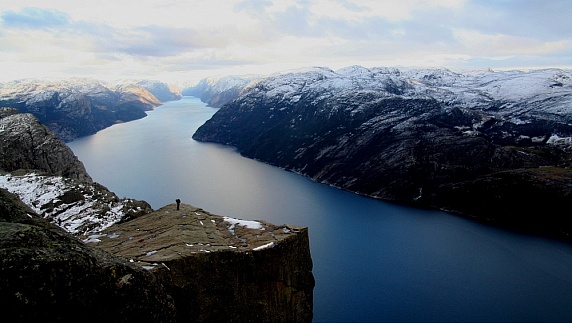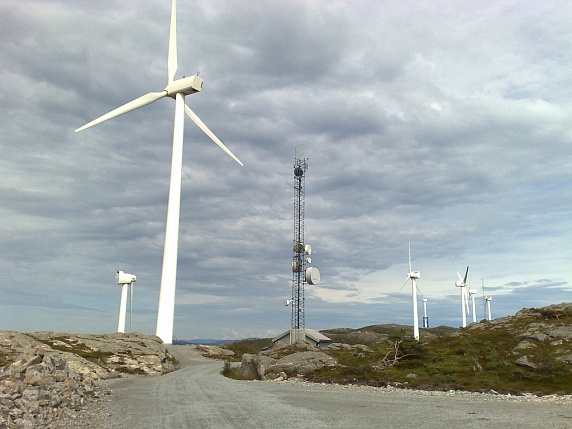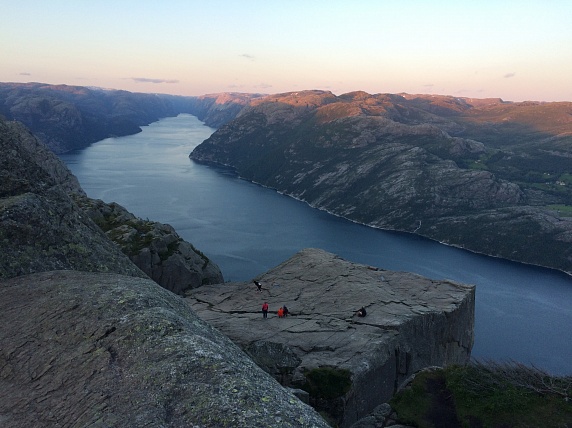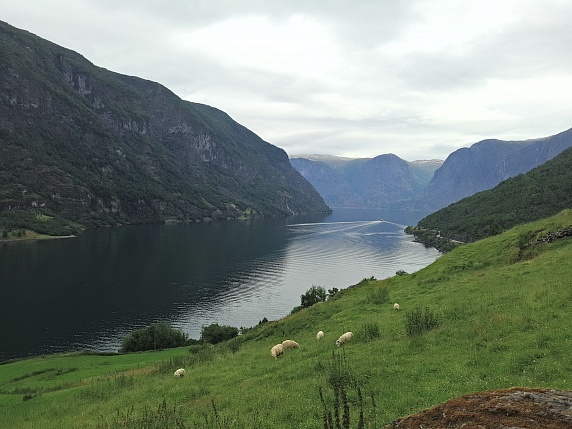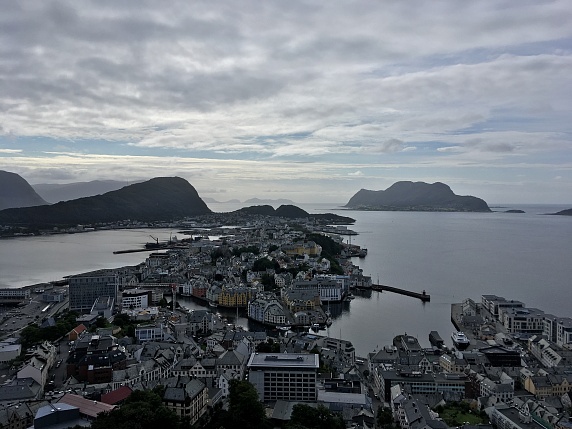 the Kingdom of Norway
the Kingdom of Norway
Foreign Minister Sergey Lavrov's statement and answers to media questions at a joint news conference following talks with Minister of Foreign Affairs and International Cooperation of the Republic of Sierra Leone David John Francis, Moscow, May 17, 2021
Ladies and gentlemen,
I would like to thank Minister of Foreign Affairs and International Cooperation of the Republic of Sierra Leone David John Francis for the substantive and productive talks that took place during his first foreign visit after being appointed head of his country’s foreign affairs department two weeks ago.
Mr D J Francis has visited the Russian Federation before, and among other things, participated in the first ever Russia-Africa summit in October 2019.
Today, we discussed ways to expand our relations going forward. I would like to congratulate the minister, the delegation, and all the people of Sierra Leone on the 60th anniversary of independence, which was marked on April 27. Russia, and the Soviet Union, made a decisive contribution to supporting the battle against colonialism and spearheaded the UN Declaration on the Granting of Independence to Colonial Countries and Peoples.
Our countries maintain traditionally friendly relations which rely on equality, mutual respect and consideration for each other's interests. Diplomatic relations between Russia and Sierra Leone will see 60 years in January 2022. We agreed to hold a number of events dedicated to this anniversary in order to have a proper celebration.
The minister has quite a busy schedule during this visit. He will meet with Russian businesspeople - those who are already working in Sierra Leone and those who plan to invest in this promising economy. He met with representatives of the academic community and NGOs engaged in relations with Africa. He will have a meeting at the Moscow Chamber of Commerce and Industry and with Sierra Leone students studying at RUDN University. We continue to provide assistance in this area to our friends through higher education grants each year.
We both want to lift our trade, economic and investment cooperation to the level of our political dialogue. So far, our achievements in trade have been modest, but as I said, we have specific plans in mind. I hope this visit with the delegation, led by the minister, will expedite the implementation of this. I’m referring to the prospects offered by mutually beneficial projects in mining, the fuel and energy complex, infrastructure, and fishing. We will continue our discussions to ensure that Russian businesses enjoy a favourable working environment in Sierra Leone. D J Francis reaffirmed that this matter will be on his list of priorities.
We agreed, the coronavirus situation permitting, to resume the activities of the Working Group on Energy, which was created following President of Sierra Leone Julius Maada Bio’s attendance at the Russia-Africa Summit held in Sochi in 2019. The group has already held its first meeting. This year, we are planning its second meeting.
We signed an agreement to waive visa requirements for holders of diplomatic and service passports and discussed the practicality of expediting the signing of several more documents that are still in the works.
I mentioned our cooperation in education. We are interested in expanding humanitarian and cultural exchanges. We will continue to provide assistance to Sierra Leone as it strives to overcome humanitarian challenges, including food supplies through the World Food Programme. Just a few days from now, a Russian Emergencies Ministry ship will make yet another delivery to the port of Freetown.
We spoke about foreign policy cooperation. It is developing systemically. In 2017, we signed a memorandum on cooperation between foreign ministries. In accordance with this memorandum, we hold detailed consultations on many regional and global issues every year. Our bilateral foreign policy contacts are based on respect for the fundamental principles of international law. This primarily applies to respect for the sovereignty of states, non-interference in internal affairs, peaceful settlement of any disputes or conflicts and respect for the right of nations to decide their destiny and choose their own development path.
Sierra Leone chairs the African Union Committee of Ten that was established to promote Africa’s position on reforming the UN Security Council. We spoke in detail about this today. We confirmed our conviction that such a reform should increase the representation of the developing nations in the UN Security Council. All of us should work for greater participation from the Asian, African and Latin American countries. In this way we could restore justice in this central UN body that oversees the maintaining of peace and security. We agreed to develop further coordination in the UN where Sierra Leone supports key Russian initiatives (for which we are grateful), including the unacceptability of glorification of Nazism, prevention of an arms race in space, development of a dialogue on confidence building measures in space, arms control, disarmament and non-proliferation, and many others. Sierra Leone has traditionally voted with us. We also have a good practice of supporting each other’s nominees for elections to different UN bodies.
We focused on the situation in Africa. This is a traditional topic for discussion with our African friends and the African Union. Our position is clear: an African solution to African problems. All external actors must create the best conditions for the African countries, their sub-regional organisations and the African Union to draft common solutions on overcoming crises in the most effective way.
There is one more area in which we enthusiastically support our African friends. I refer to the need to strengthen their potential in countering the threats of terrorism, illegal weapons trade, drug trafficking, and other forms of organised crime. We share Sierra Leone’s approach to the current situations in the Sahara-Sahel Region and West Africa, the Horn of Africa and the Central African Republic. As a permanent UN Security Council member and a friend of Africa, Russia will contribute to the strengthening of regional security and stability by supporting, let me emphasise this again, the efforts of the African countries themselves.
We have very good impressions that we exchanged today on the results of the first Russia-Africa summit in Sochi in October 2019. We described the measures taken by the Russian Federation to implement the summit’s agreements and create systematic, permanent mechanisms for cooperation through political dialogue and encouraging economic and investment cooperation. We hope the second Russia-Africa summit, as agreed to in Sochi, will take place in Africa in 2022. We hope that President of Sierra Leone Julius Maada Bio who attended the first summit will take part in the second one as well.
I consider our conversation useful. I am sincerely grateful to Mr Minister for visiting the Russian Federation at our invitation.
Question: Armenian Prime Minister Nikol Pashinyan accused Baku of encroaching on Armenian territory. Is there a new threat to the ceasefire agreement in Nagorno-Karabakh?
Sergey Lavrov: After this incident occurred, Azerbaijan issued statements explaining the incident by a misunderstanding, and most importantly, by the absence of a delimited and demarcated border. Nobody there ever thought about it. We suggested that the parties start working on this. We stand ready to assist them in providing cartographic material and consultations.
Not a single shot was fired. No skirmishes took place. We sat down and started talking calmly about how to defuse this situation. They asked for assistance. Our military provided it. An agreement has been reached.
I see no reason to stoke emotions with regard to an issue that has been settled in a calm manner.
Question: A list of unfriendly states, which includes the Czech Republic and the United States, was released recently. What does this mean in practical terms?
Sergey Lavrov: We have already provided clarification on this. These countries have exhibited an extremely unfriendly approach to the Russian Federation by accusing us of all manner of transgressions without providing any evidence whatsoever.
You can see the disgrace the Czech Republic is now facing as it tries to sort out the explosion-related incident that took place seven years ago. Until now, no one has been able to tell what the investigators have been doing all those years. They are providing mixed evidence and coming up with more scenarios. First, you must sort such things out at home, and do that before expelling diplomats or declaring charges against them before the investigation is completed. Judging by the way they are going about it, it is unlikely that it will bring any concrete results.
As you know, the United States seized our diplomatic property. For many years now we have been denied access to that property, Russian state property, which was taken from us illegally. Our diplomats are expelled from that country on a regular basis.
We have made clear many times that this has to stop. In this case, these unfriendly moves served as a reason for making a decision to create a level field for diplomatic missions, Russian mission in the Czech Republic and the United States, and Czech and American missions, respectively, in the Russian Federation. As a concrete step, which has already been announced, we asked them to bring the number of local staff hired from among individuals (both Russian citizens and citizens of third countries) to the number of employees of the same category that we have in the Czech Republic and in the United States, respectively. In the Czech Republic, that’s 19 people, in the United States, zero. At this point, a decision has been made.
Question: The death toll has exceeded 200 in Israel and the Gaza Strip, and thousands have been wounded. Meanwhile, the parties, as we hear them say, do not plan to retreat. What can turn the situation around and put an end to the bloodshed? Do you agree with UN Secretary-General Antonio Guterres that only talks that focus on a two-state solution with the capital in Jerusalem can change the situation in the region?
Sergey Lavrov: I agree with what Antonio Guterres said about the need to create two independent states – Israel and Palestine. But these were not his exact words. He just cited numerous UN Security Council resolutions. The two-state solution is part of the resolutions that point to an integrated and sustainable approach to resolving the Palestinian problem. It also mentions the need to observe and in no way violate the status of holy places; it covers settlement activities, which are illegal, especially when it takes on extreme forms such as throwing people out into the street.
Direct talks are the only way forward if we want to agree on creating a Palestinian state, which, in accordance with UN decisions, would live side by side in peace and security with Israel and other countries in the region. For these talks to start, it is imperative to end the violence on all sides. We condemn the bombing of residential quarters from the Gaza Strip. Strikes against civilian targets on Palestinian territory are totally unacceptable. I think enough calls have been made to put an end to this situation immediately and to start talks.
We highly appreciated Egypt’s mediation efforts. Foreign Minister Sameh Shoukry has kept us informed about his exchanges with the parties. At some point, we thought he was close to achieving a result, but for some reason the desire to continue punishing people prevailed.
We operate on the premise that the international community should not be watching what’s going on listlessly. There’s a quartet of international mediators who are directly responsible for facilitating a solution to the Palestinian issue. The UN Security Council met yesterday. Several days have been wasted because the United States said it wasn’t ready to discuss the situation when it erupted. Nevertheless, the UN Security Council discussed the problem, opinions were expressed and messages sent. Now, everything depends on the parties’ ability to reach an agreement and their goodwill. We will do our best to help them reach an agreement on how to appease the ongoing dangerous phase of the conflict and to start direct talks as soon as possible.
For several years now, including at the request of the Israel, we have been standing ready to host direct talks between the leaders of Israel and Palestine on our territory. The other day I read an interview with the Ambassador of Israel to Russia Aleksander Ben-Cewi. He said Israel has always been ready for direct talks between the Prime Minister of his country and the President of the Palestinian National Authority, without any preliminary conditions. He said so publicly. I would also like to publicly remind the Ambassador that, with our assistance, an agreement to this end was reached several years ago. It was not acted upon back then, and it was not our fault.
Question: The United States considers your talks with Secretary of State Antony Blinken a step towards stability in bilateral relations. At the same time, they are worried about the consolidation of a Russian military presence in the Arctic. Isn’t this a discrepancy? What will the main issue be at the talks with Mr Blinken?
Sergey Lavrov: Apparently, a decision was made to promote stable, predictable relations with Russia. However, if this includes constant and predictable sanctions, that’s not what we need. Our attitude towards the US includes the hope that normalised relations will be based on specific actions rather than words (of which we have heard too many). I reminded Mr Blinken of this during our telephone conversation. As far as I know, he has the same approach. We want to look at areas of bilateral relations, international life where our interests may coincide, and search for a balance along the lines of equality and mutual respect.
As President of Russia Vladimir Putin emphasised recently, we will determine which issues we want to cooperate on, as well as the forms of cooperation. Russia will also determine the lines that we will not cross during discussions on the international agenda. This fully applies to the problems of strategic stability. We have repeatedly described our approach to this important issue. Everything that affects strategic stability (nuclear and non-nuclear arms, offensive and defensive weapons) must be on the negotiating table. The Americans know our approach. We have already sent the relevant unofficial paperwork to the new administration. I hope for a professional conversation that will allow us to clear up the US’s specific intentions in its relations with Russia and their position on international issues that affect our interests in various ways.
We are hearing grievances about Russia’s enhanced military activities in the Arctic. It has long been common knowledge that this is our territory, our land. We are in charge of keeping the Arctic coast safe. Everything Russia is doing there is absolutely legal. When NATO tries to justify its “offensive” in the Arctic, it’s a slightly different situation.
We have questions for our neighbours, for instance, Norway, that tries to justify the need for a NATO presence in the Arctic with different reasons. We will openly discuss this issue at an Arctic Council meeting in Reykjavik. If someone wants more predictability and less military risk, I suggest returning to our long-standing proposal to resume the mechanism of regular meetings between the Arctic Council members’ armed forces’ general chiefs of staff. Our Western colleagues decided to suspend this about seven years ago. After deciding this, they shouldn’t take offense at the lack of a dialogue. We didn’t suspend it, but we are once again proposing that we resume these meetings. As a first step, we could start with the military experts from the Arctic Council’s eight members rather than the chiefs of staff. This proposal is on the table. We will hear what the others, including the United States, think about it in Reykjavik.

